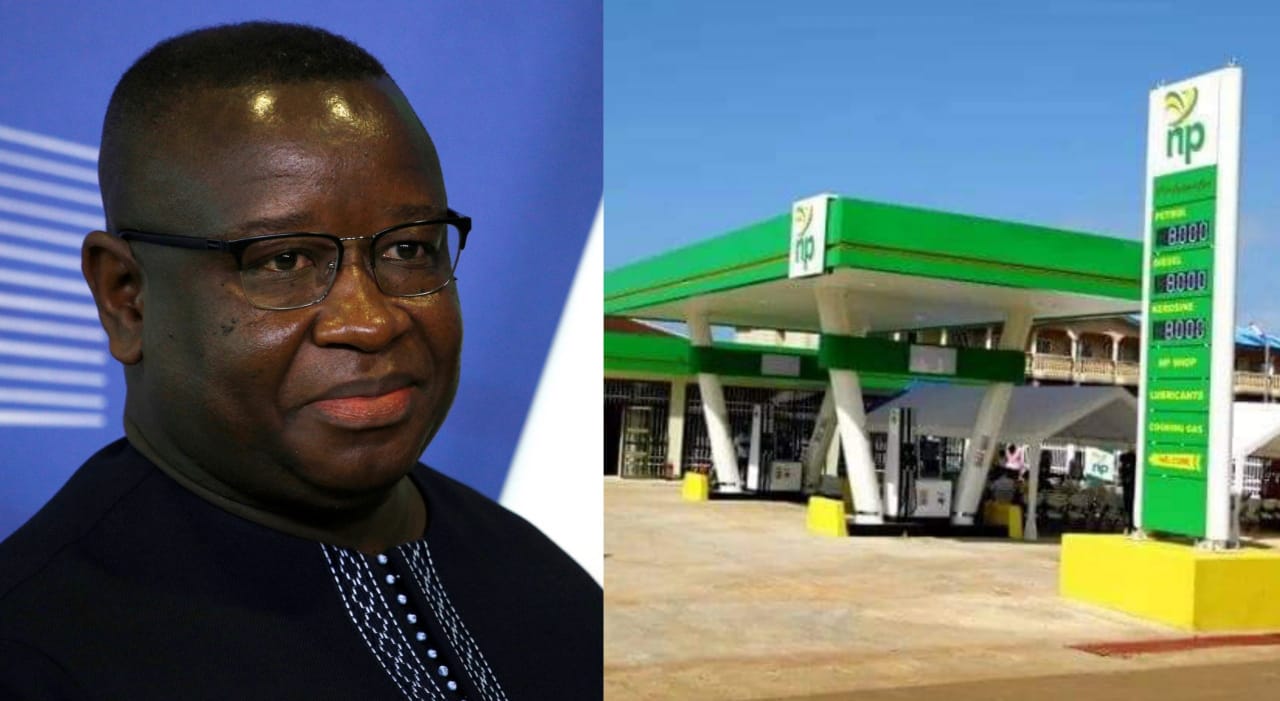The adjustment of retail pump prices of petroleum products from NLe 25 to Nle 30 was a decision that was too hard to take by the Government of His Excellency Dr. Julius Maada Bio, looking at the economic implications it would have on citizens.
Since he was elected in 2018, President Bio has been heavily subsidizing retail pump prices to cushion the effect of global uncertainties, especially during the height of the Russia/Ukraine war.
This was done to ensure the availability of petroleum products in the market while at the same Gtime supporting oil marketing companies to import.
According to the Financial Secretary Matthew Dingie in one of his interviews on Radio Democracy 98.1, from February to June this year, retail pump prices were subsidized to the tune of over $35 million which affected the revenue potential of the downstream sector that contributes about 15% to the country’s GDP.
He also made it clear that, for the government to meet its financial obligations to implement flagship programs like Feed Salone, Affordable quality health care, and education, it is necessary for the gradual removal of subsidies which is currently in force.
While Sierra Leone could boast of having a petroleum storage capacity of over 200 metric tonnes, only 50% of that capacity is being utilized at the moment by importers.
It is believed that if those storage tanks are filled, they would serve the country for up to six months without shortage.
The lack of government participation in the downstream petroleum value chain from importation, storage, and distribution is seriously eroding any effort by the government to stabilize the prices of products since the market is 100% privately driven.
Unlike Sierra Leone with no stake in the value chain, Guinea 2021 established the Societe National de Petroleum (SONAP) to import on behalf of oil marketing companies.
The establishment of SONAP has not only ensured the availability of petroleum products by timely importing but has helped in the stabilization of pump prices for almost a year in Guinea.
This could also be said of Ghana where Ghana Oil (GOIL) Company plays a major role in the value chain importation and distribution.
Despite over forty oil marketing companies operating in Ghana, GOIL can only announce new pump prices when it is necessary, and that has been preventing other companies from demanding an increase when it is not timely.
It has always been said that petroleum products are political commodities that can be used to make any government unpopular.
The only way the cartel can be known and broken is for the government to take its destiny seriously for there is no certainty that there would not be further increment as it stands.
Already, some industry players are experiencing serious financial difficulties which leaves room for the government to negotiate for storage facilities and bring products without hassle.
The average Sierra Leonean only cares about the availability of products and the assurance of price stability irrespective of who brings the products or where they are coming from
It is time for His Excellency President Julius Maada Bio to take the bull by the horns to start importing petroleum products as that can adequately address the issue of prices and stability.
Stabilizing the prices of petroleum products will stabilize the cost of transportation, minimize the cost of living, and improve the economy since petroleum products are essential commodities.
The time is now!!


 Post a comment
Post a comment









Comment(s)
Disclaimer: Comments expressed here do not reflect the opinions of Sierraloaded or any employee thereof.
Be the first to comment